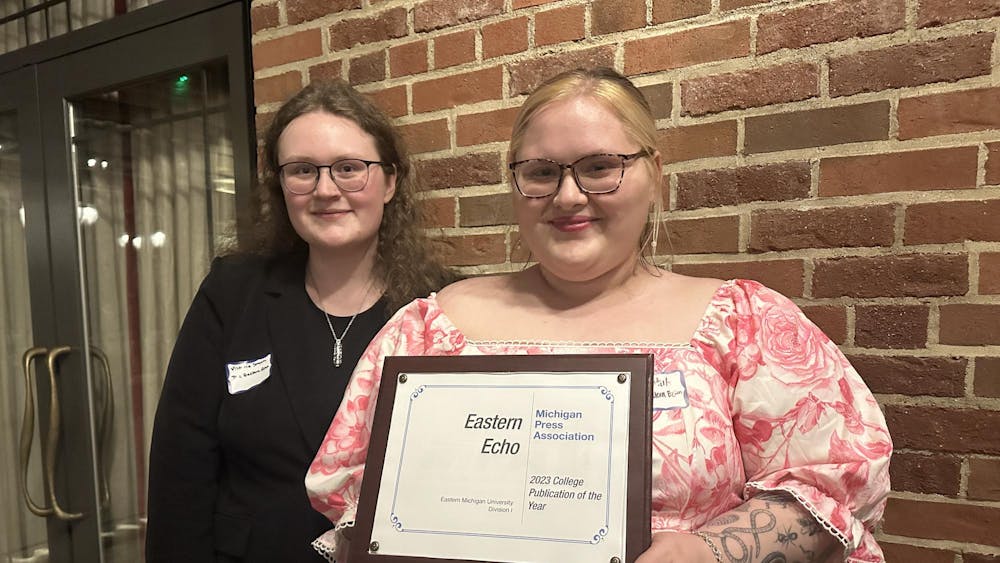For years, Pam Olech has been one of Eastern Michigan University’s many full-time lecturers in charge of observing and advising student teachers. But her position has been threatened due recent layoffs within the EMU College of Education.
A notice was sent to 10 of the 11 full-time lecturers in the COE on Dec. 10, 2013. The letter, signed by David Woike, EMU’s assistant vice president for academic affairs, informed recipients that “we regret to notify you that you will be laid off.” The action will be effective Aug. 31, 2014.
Many of the lecturers, like Olech, worked directly with student teachers and performed the task of placing them with schools in the area. Now, tenured faculty members will be left with the responsibility.
“Our job entails a great deal when we’re mentoring students and I’m not sure professors will have time to do that,” Olech said. “I don’t think that the College of Education will do students justice if they don’t have personnel who can spend time with them.”
Olech mentioned that contacting districts to connect student teachers with schools is “probably the hardest part” of the job.
The COE has already been experiencing issues placing students. Several Washtenaw schools boycotted EMU student teachers because of the university’s partnership with the Education Achievement Authority. The EAA, which was created to step in and operate underperforming schools in Michigan, has been criticized for firing teachers following the takeover of schools.
Cynthia Gabriel, a part-time lecturer in anthropology and one of the protesters who collected signatures from students near the entrance of the Porter Building on Wednesday afternoon, said she had talked to a student who had to make her own connection with a local school district in order to secure a position as a student teacher.
“This is exactly the wrong time to be firing the people who have connections in the schools,” Gabriel said.
Gabriel, who is part of the EMU Federation of Teachers, is a vocal opponent of the way the current education system is financially supported. Her son, who is in a special education program, lost the language therapist at his preschool because of fiscal trouble. She also views the EAA as a side effect of the economic issues schools have been facing.
“I think that the defunding of the education system has led to both [the layoffs and the creation of the EAA],” Gabriel said. “If teachers don’t have money to live, students don’t get a quality education.”
The associate dean of the College of Education, Shawn Quilter, said that the layoffs are only a potential action and that the college is waiting to see what enrollment looks like next year. Laid-off employees may be recalled within two years.
“We’ve communicated with them that once we’ve figured out what we need, then we’ll know if and how many layoffs we need to proceed with,” Quilter said.
The decision was made by the College of Education to address financial problems and the problem of fewer students in the education programs. According to the EMU Data Book, enrollment in the College of Education has been steadily dropping in recent years, falling from 3,570 students in 2011 to 3,403 in 2012 and 3,235 in 2013.
“These are difficult times and we’re trying to manage big enrollment changes,” Quilter said. “We have a ton of respect for [the lecturers]. Some of them have been here for years.”
Susan Martin echoed these sentiments in an email sent out to the EMU community.
“We are being responsive to our enrollment trends in order to continue to maintain the high quality of EMU’s nationally recognized teaching program while exercising responsible budget management and cost containment,” Martin said. “We have great respect for all of our full-time lecturers and it is always a difficult decision to inform quality, valued personnel that their appointments are ending. However, we must consider the enrollment trends that are affecting education programs at universities throughout the state and nation.”
Eastern Michigan University was originally founded in 1849 as a teachers’ college. Its original name, Michigan State Normal School, is a relic of the university’s original purpose – normal school is an archaic term used to describe institutions where teachers were trained, thus setting the norms and standards in education.
But recent troubles have brought into question the future of EMU’s reputation as a top choice for educators-in-training. Changes to the standardized Michigan Test for Teacher Certification, announced in November, have made the examination required for education majors much more difficult. Before the changes, pass rate for EMU students was 92 percent. Only 26 percent of students passed the updated version.
Some students wonder if letting go of staff amidst difficult times is a good move. “If we continue to cut back, it’s eventually going to affect all of us,” sophomore education major Kayla Zyngier said.
Other students, like junior education major Melissa Sammons, felt for the lecturers whose jobs were threatened.
“It’s unfortunate,” Sammons said. “I don’t ever like to hear about teachers losing their jobs.”
Still, Gabriel hopes the lecturers will be able to retain their positions.
“It’s unfair to the children, it’s unfair to the students and it’s unfair to the teachers who have worked here 20 years and depend on this job,” Gabriel said.
She is also hoping for the sake of EMU’s reputation as a prominent education school that the layoff issue is resolved soon, fearing these changes will negatively affect students in the program.
“They are shooting themselves in the foot,” Gabriel said. “They are killing the golden goose. They’re playing with our legacy.”







